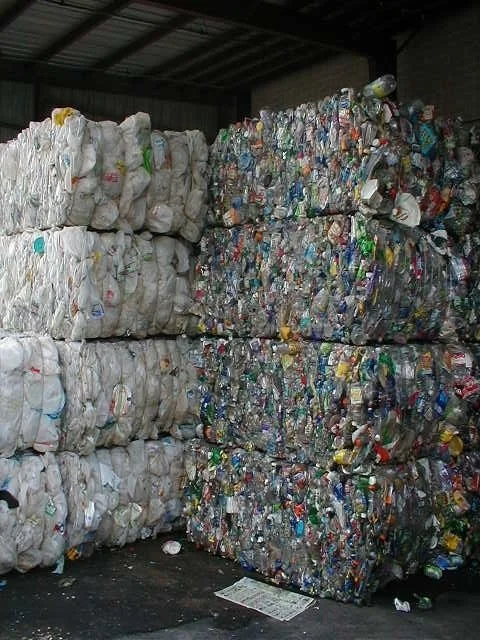Special Edition Spring 2022: An Open Letter to President Roloff
It’s time we take sustainability seriously
Dear President Roloff,
On behalf of the student body at St. Catherine University (SCU), we demand action and re-evaluation of the institution’s commitments to sustainability and climate justice. We urge you to hear us, understand us and join us in climate action to protect and preserve our future. As a social-justice driven university, we implore you to read this letter with an open mind and heart, and ask that you demonstrate your support by taking our frustrations, demands and expectations seriously.
In October 2008, SCU President Andrea Lee, IHM signed the American College & University President’s Climate Commitment (ACUPCC), now known as the Presidents’ Climate Leadership Commitments, at the request of the Environmental Issues Task Force of Student Senate. As a result, the university created funding for student research to inform emission reductions, a detailed climate action plan and a promise to shift University culture to establish a more sustainable future.
However, this vision was lost: The climate action plan was never implemented, research ceased and University culture continued to put sustainability on the back burner. Eventually, the ACUPCC deemed SCU not in fulfillment of the agreement and removed us.
Since then, sustainability at our university has been student-led and in some cases, student-funded. Students have repeatedly poured their time, passion and energy into these issues, only to be met with bureaucratic red tape and a lack of administrative support. Initiatives like the Pollinator Commons, the honeybees and most recently, upgrades to campus composting were all student-driven. Even the President’s Food and Waste Committee was created as a response to student demands.
While these initiatives were and remain to be impactful, students have felt frustrated that university decisions surrounding sustainability have lacked consistency. We feel that the university is unable to appropriately respond without understanding the complexities surrounding climate issues. To engage in equitable climate justice, we must acknowledge the intricate relationship between environmental, gender and racial issues.
A 2020 article from Carbon Brief found that women face disproportionate consequences of climate change when compared to men, and a 2020 article from Yale and that “both historical and present-day injustices have left people of color exposed to far greater environmental health hazards than whites.” Colonialism, slavery and systemic oppression have disempowered and pushed individuals of color, especially women of color, to bear the harm of climate change.
St. Kate’s social location as a historically women’s college and minority-serving institution is imperative to climate action, as is our physical location. Our Living land Acknowledgement begins every event, “with honor and respect for the land and for the first people of this land.” St. Kate’s should demonstrate this honor and respect by caring for and advocating on behalf of the land through climate justice. The university must acknowledge that climate change is a gendered and racial justice issue. Until then, our institution cannot effectively act, and young people, especially members of our community, will face the consequences of previous generations' environmental harm and destruction.
We cannot make up for the time we stood idle to issues we could fix. By choosing inaction, the university has failed to demonstrate the leadership it claims to teach and dilutes the trailblazing legacy of our founding Sisters.
However, it is never too late to act. As a Catholic institution, Catholic Social Teaching guides our epistemology. Pope Francis’ Encyclical Laudato Si’ states that “all Christian communities have an important role to play in ecological education” and that protecting the earth from human harm “is not an optional or secondary aspect of our Christian experience.”
As an example, we can look to our founders and partners, the Sisters of St. Joseph of Carondelet (CSJs), who have advocated for and enacted climate change in their community through their Earth Partners group and their Laudato Si’ Action Plan. Through their action plan, the CSJs “seek ecological conversion by deepening our spirituality, advocating for social change and committing to social action that will impact ecological sustainability.”
We believe that the university must take substantial action to demonstrate that St Catherine University recognizes the importance of climate action. Through dialogue with Student Senate, we can re-sign the Presidents’ Climate Leadership Commitment (or an equivalent agreement) to implement an updated climate action plan.
This action plan should include specific goals, sustainability infusions into curricula and accountability structures to ensure an ongoing commitment to sustainability efforts led by the student body. The university should draw examples from the CORE GSJ Environmental class and guidance from departments such as the fashion program, which has been exemplary in successfully infusing sustainability into fashion courses and their interdisciplinary sustainability studies minor. Just as we can look to the CSJ community for guidance, we can look at the climate action plans of our partnering Associated Colleges of the Twin Cities (ACTC) schools to see how they have successfully integrated sustainability into their buildings, landscaping, food services, education and more.
Our past and present sustainability initiatives prove that we, as the students of St. Catherine University, are capable of leading and creating lasting change. This letter is not an ask to turn away from student-centered action. Instead, this is a call for the administration to actively and consistently support us when we lead. We cannot be expected to lead in the world beyond St. Kate’s if we feel our university does not encourage us. We demand this support through formal recognition of sustainability issues, timely structural change, continued open conversation and a willingness to act on behalf of our future-even when it is challenging. Real change is difficult, but worth it.
We, as students, have been ready for this change. It’s time the University joined us.
Regards,
Mollie Pierson ‘25 (Sociology, Economics, and Women & International Development)






